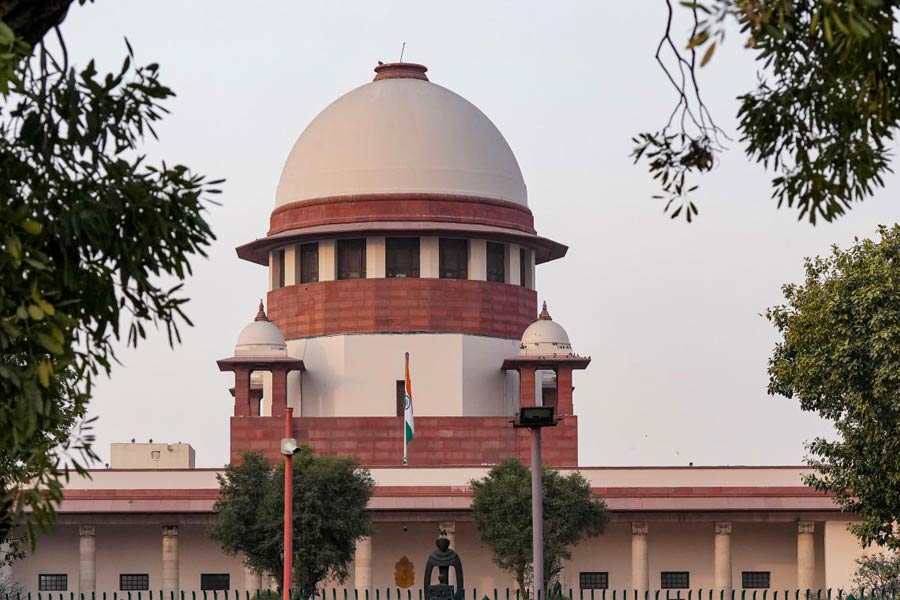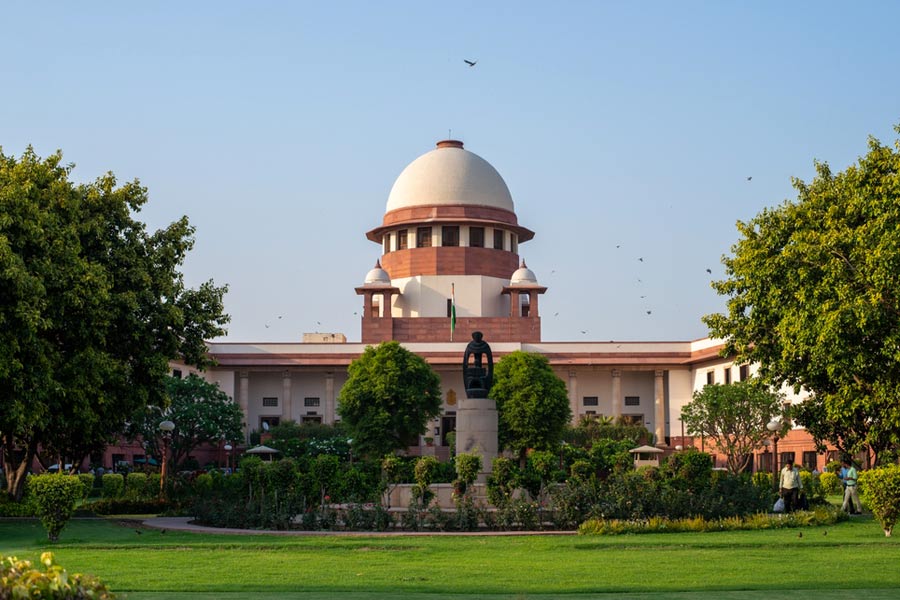A five-judge constitution bench of the Supreme Court was on Tuesday told that the 2018 electoral bonds scheme has gravely undermined national interest as it enables even foreign companies to make donations to political parties in India, including from China and Pakistan, when investments from entities abroad are not permissible in sectors like atomic energy, media and real estate.
Advocate Nizam Pasha, appearing for PIL petitioner Spandan Biswal, told the bench headed by Chief Justice of India D.Y. Chandrachud that investments in atomic energy, real estate and media by a foreign company were restricted under foreign exchange regulations, and the same restrictions extended to companies registered in India but owned or controlled by persons outside the country.
“This distinction, which is the bedrock of foreign investment laws of India, has been set aside without any rationale when dealing with electoral laws through the impugned scheme. It is submitted that there is no rational justification for why the standard of foreign ownership and control that is generally applied to foreign investment has been diluted for electoral laws,” advocate Pasha said.
According to the petitioner, The Finance Act, 2017, introduces the concept of an “Indian company” which is permitted to purchase electoral bonds and fund political parties in the country as being a company registered in India. The related amendment to Section 2(1)(j) of the Foreign Contribution Regulation Act (FCRA) specifies that as long as an Indian registered company has received foreign investment in accordance with the prevailing foreign direct investment laws, it shall not be treated as a “foreign source” for the purposes of FCRA even if the foreign investment exceeds half the share capital of the company.
Prior to the 2017 amendment of the Finance Act, 2017, FCRA restricted the receipt of foreign contributions by a political party. A company registered in India but 50 per cent of whose share capital was owned by citizens of a foreign country was treated as a “foreign source”, and contributions by such sources were treated as foreign contributions.
“Pursuant to the amendments, blanket permission has been given for foreign funding to Indian political parties so long as it is routed through a company registered in India, by purchasing electoral bonds, without reference to ownership or control of such Indian registered companies,” the petition said.
“This concept of an ‘Indian company’ under the Finance Act, 2017, gravely undermines and is at clear variance with the manner in which the laws regulating inflow of foreign capital into India deal with foreign investment into Indian companies,” Pasha told the bench, which included Justices Sanjiv Khanna, B.R. Gavai, J.B. Pardiwala and Manoj Misra.
The bench was hearing a batch of PILs filed by the Association for Democratic Reforms (ADR), the CPM and several individuals challenging the 2018 electoral bonds scheme as being an opaque political donation system facilitating unbridled flow of anonymous money from questionable companies and sources.
Foreign direct investment into companies registered in India is governed by the Foreign Exchange Management Act (FEMA) read with Foreign Exchange Management (Non-Debt Instruments) Rules issued by the central government.
Foreign investment by persons living in or are citizens of countries that share a land border with India, such as Pakistan, Bangladesh and China, are treated as a different category and are subject to different regulations compared to foreign investment from other countries.
“However, once foreign investment has been permitted from one of such countries into an Indian registered company under the approval route, such companies are treated at par with all other Indian registered companies insofar as their ability to purchase electoral bonds is concerned. No such restriction is applicable to political funding via electoral bonds. This demonstrates that a distinction that was conceived in national interest has been deliberately omitted in the context of the Electoral Bonds Scheme, rendering the scheme manifestly arbitrary as being contrary to public interest,” Pasha told the court.











